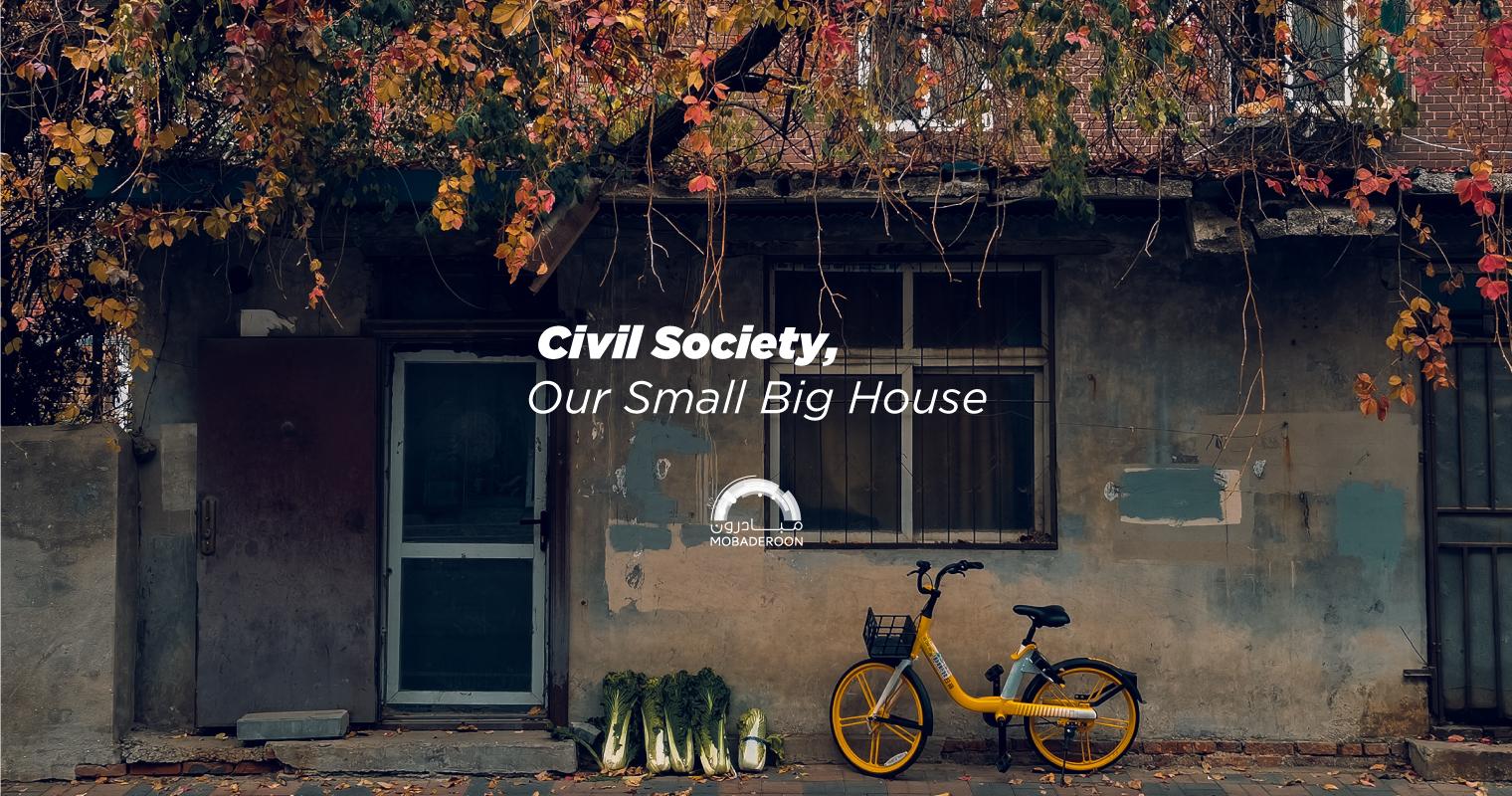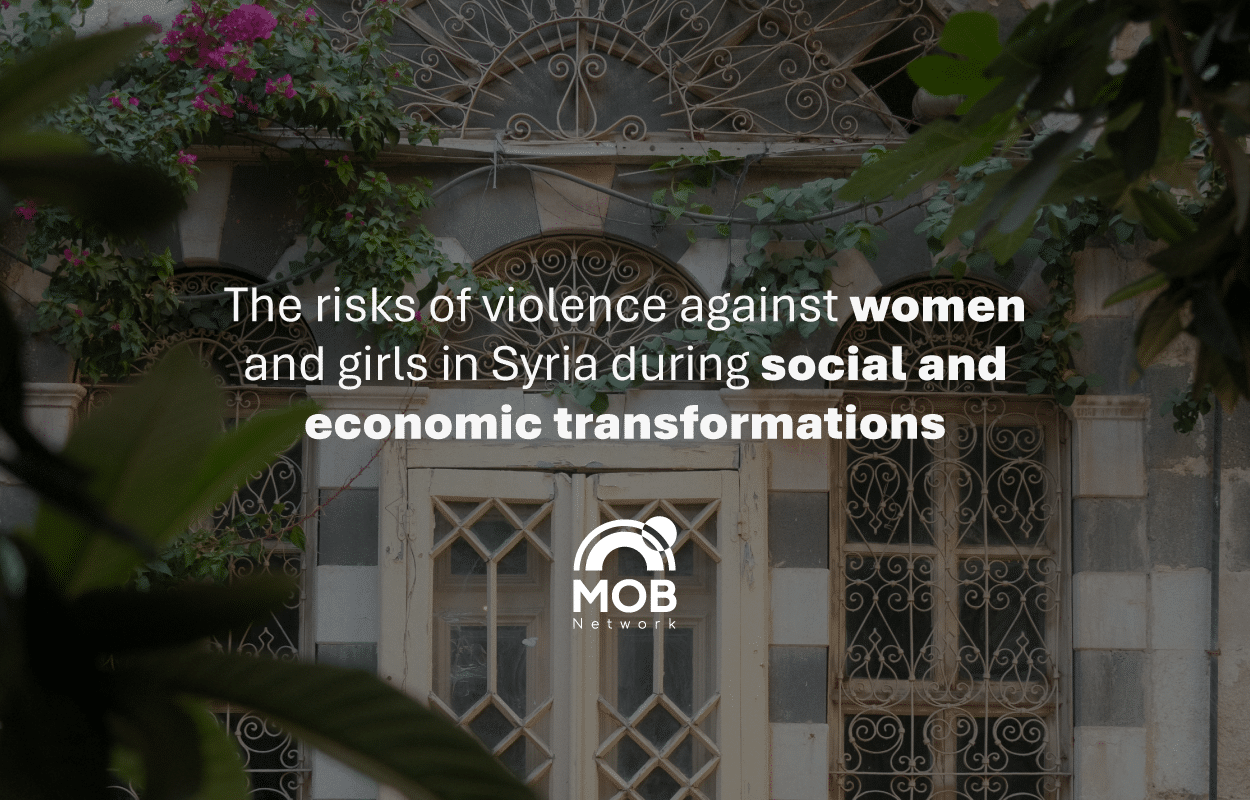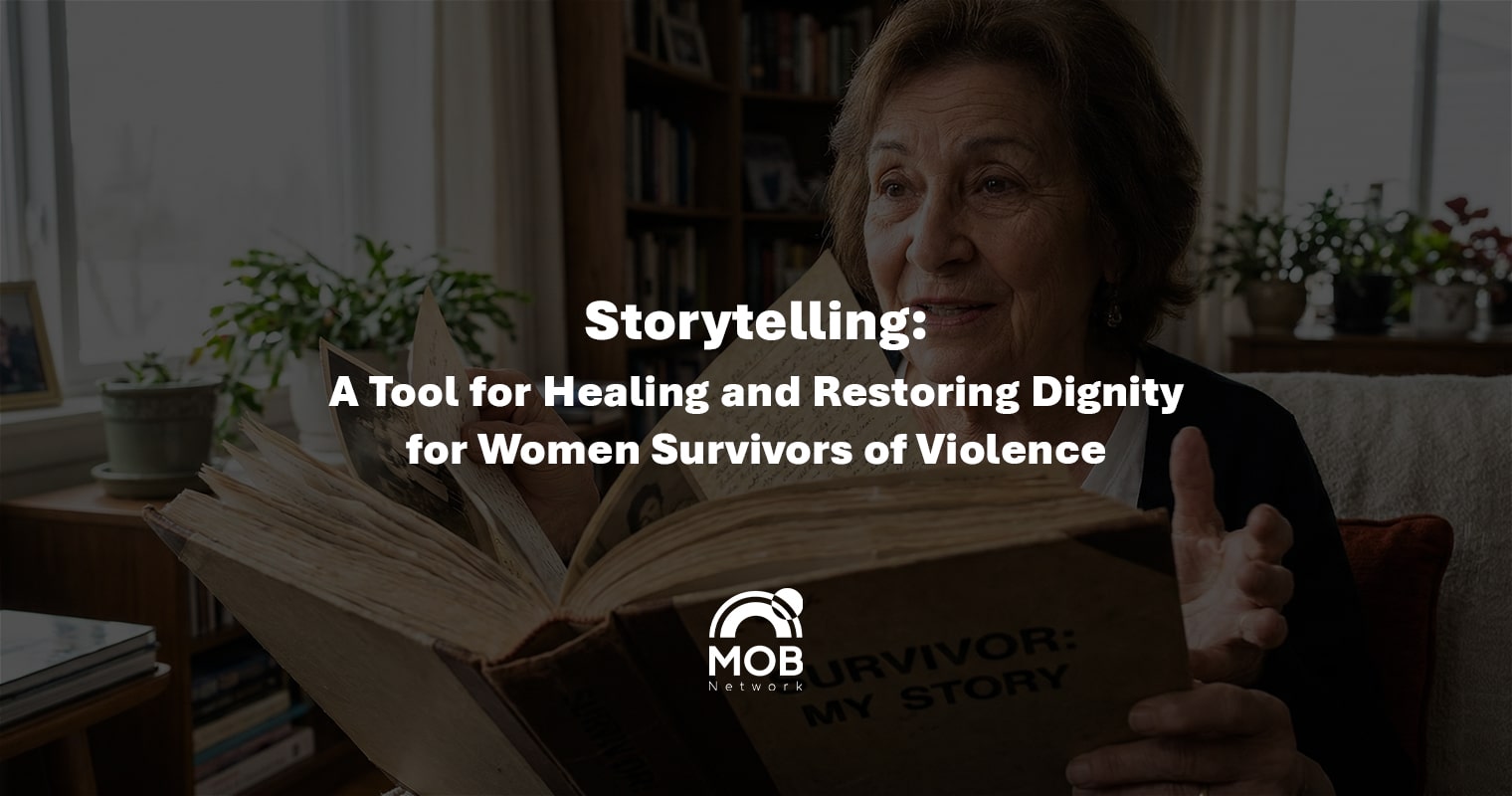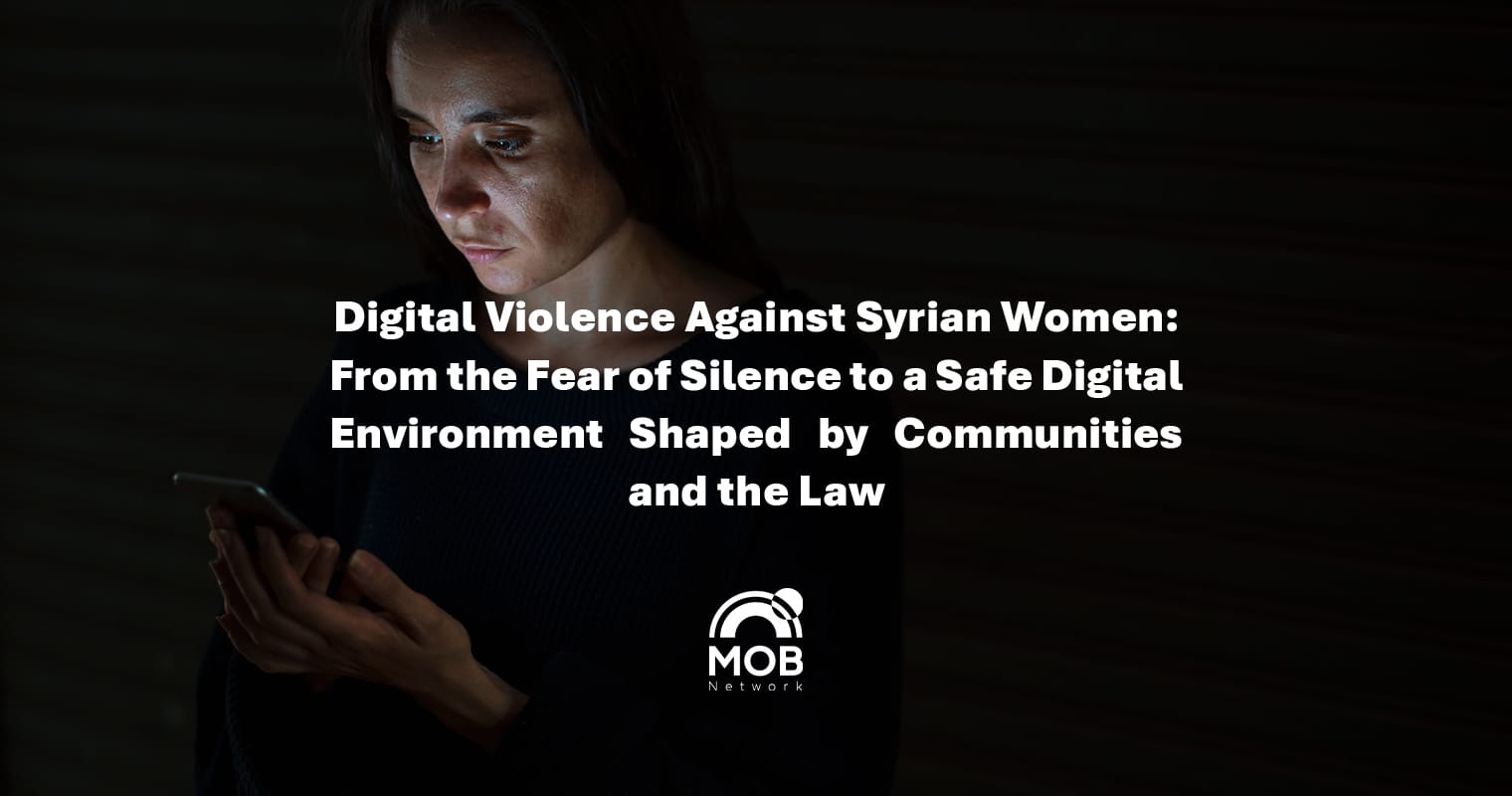Never has the atmosphere of my family at home incited fear of the outside, nor have I seen therein the aggregation of fears that I beheld later on in my life in TV series or programs debating a society of families and equality between men and women. My parents have always made me feel that a family is the accumulation of their combined efforts and that they must be attentive together in all life aspects to have a full circle. Upon growing up a little, I became to understand the controversial meanings and different concepts of other families; until I wondered more than once: “Why isn’t the society for other families and their concepts the concept of diverse participation (collaboration)? And why is it that understanding and each person sticking just to their role is considered weak by some?”.
To understand more, I had to read even more about the idea of participation; that the origin of the concept revolves around each individual doing their role regardless of functional positions, for responsibility starts with an individual, and is transferred afterward to a family. Therefore, the notion of civil society was the closest to what I had in mind for it prioritizes individual roles to reach a safe collaborative society that meets the needs of its citizens. The following lines are the resultant fruit of my readings into the matter.
What is Civil Society?
The word family entails a small community that is connected to a larger one – ours – that is full of colors and diversity. Civil Society refers to us: men, women, children, and youth who have different roles that group us to collaborate and achieve our goals. The term was coined during the transfer of European society in a highly sensitive phase in which the concepts, ideas, and schools of philosophy came to be to announce the arrival of the age of enlightenment, modernization, and Civil Society.
These concepts did not take shape all at once, but rather many intellectual conflicts and huge transformations in commerce, economics, and scientific discoveries took a toll on time for crystallizing as they are now. Hence, Civil Society filled the space between society itself and the governing authority and connected them at the same time. The Arabic society is different from the Western one, for each has its specifics, nature, culture, and identity.
We can define Civil Society as Hegel did: “One of the manifestations of the state, while the family is the other, for Civil Society is a division of labor between the simple form of the social cell (the family) and between the higher form, which is the state. Hegel sees it as the independent space that accommodates individual interests away from the state; It is the field in which the interests of individuals meet with each other to achieve individual desires and goals.”.
Civil Society Components
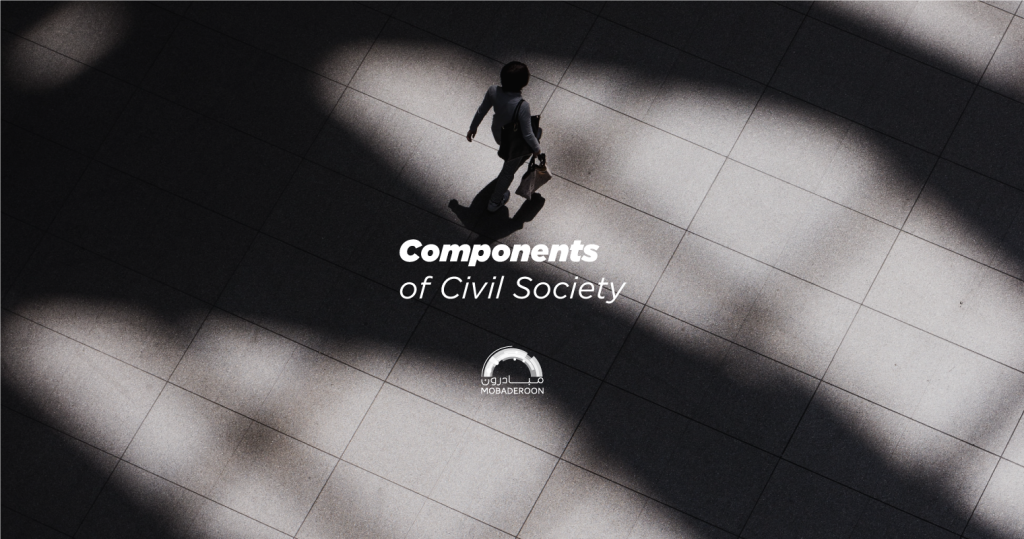
Civil Society did not come to be by force but resulted from the urgent need of the members of any community, for each of us needs to convey a voice without taking up the mantle of leadership, to feel that our existence matters, that we have a role we must perform regardless of its magnitude. The components of Civil Society are many, each with its level of effectiveness in a certain domain, including, but not limited to:
First: Professional Syndicates:
These are regulated by domain and economic variables. Syndicates usually form up weighty and powerful coalitions that can stand up to the public sector on the one hand, and the private sector on the other.
Second: NGOs (Non-Governmental Organizations):
which contribute to and work on empowering socially, economically, politically, and culturally marginalized persons.
Organizations, syndicates, unions, NGOs (legal, social clubs, youth centers, industry and commerce chambers, businesspersons’ associations, media outlets, research centers, teacher clubs, etc.), and others all are significant components of Civil Society.
The essence of Civil Society Organizations (CSOs), or Civic-Based Organizations (CBOs) lies in their non-profit nature, and would still be considered so even if they pursue profit out of economic ventures to later use it for benefit of the public, for this action ensures adequate support, and their independence and continuity.
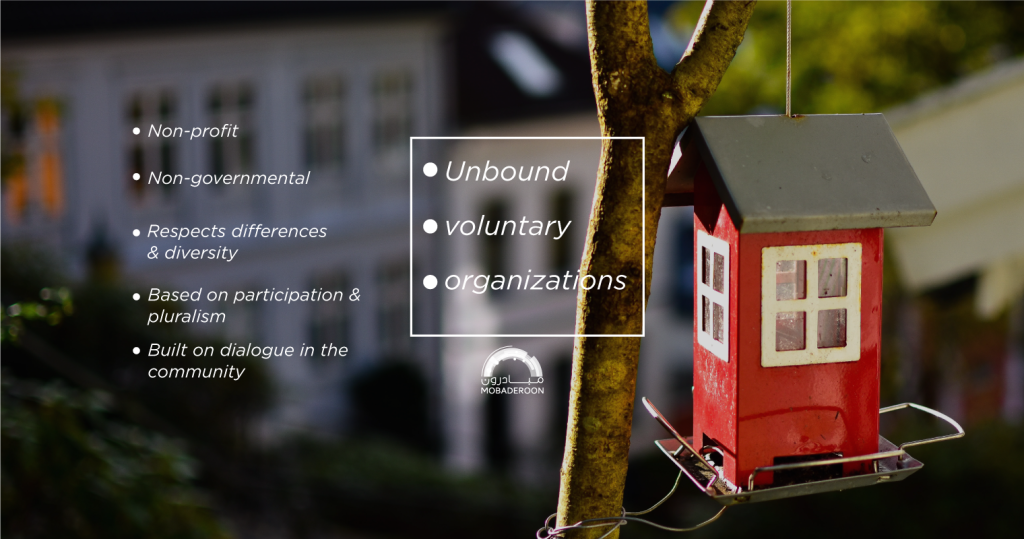
Civil Society Importance
Herein we must speak simply from the standpoint of each person who humbly contributed from her/his position to be part of this civil society, so that the real experiences and results become the most prominent example of its importance, for CSOs have vastly contributed to:
- Eradicating ignorance of the presence of many forgotten towns, neighborhoods, or suburbs.
- Introduced and implemented youth-led social-action initiatives and projects.
- Empowered both youth and women with self-expression, and knowledge of rights and duties; and provided them with opportunities.
CSOs had vital roles in conveying cultural and social voices, clarifying many concepts and information, and stimulating the economy; and even upon failing in some jobs where conflict had risen, this same conflict had a vigorous mechanism to start anew and correct the mistakes. This potent buzz filled the atmosphere with work, life, meetings, investments, and ideas.
Men, Women, and Civil Society
We have yet to reach true civil societies for we still differentiate men and women. when I commenced this article with the concept of a small family, I focused on the idea of participation because civil societies can only be built with the combined participatory efforts of both men and women, a process fostered from therein where we teach our children their roles without assigning biased roles for men or women.
Can anyone deny the role of women in realizing the security of society? Can a community become strong without its women? without providing them with all their needs, from education which has become an urgent need for each lady to be active in her community. The idea that she/her is the pillar of the family is no longer new because this has become a reality that is beheld in one-parent families. The alliance of men and women is necessary for the awakening of a healthy civil society; neither party can revoke the role of the other. A society’s strength is derived from its members, and can only grow with concerted efforts, with each doing their role.
Conclusion:
Is it possible to build a strong country without collaborative efforts beginning from the concept of a family in a small home, and each individual knowing her/his role in the community without undermining any gender so that we can land ashore the concept of a big family in a big home, and accomplish a safe civil life where each person can have her/his needs fulfilled, and feel her/his voice is heard.

